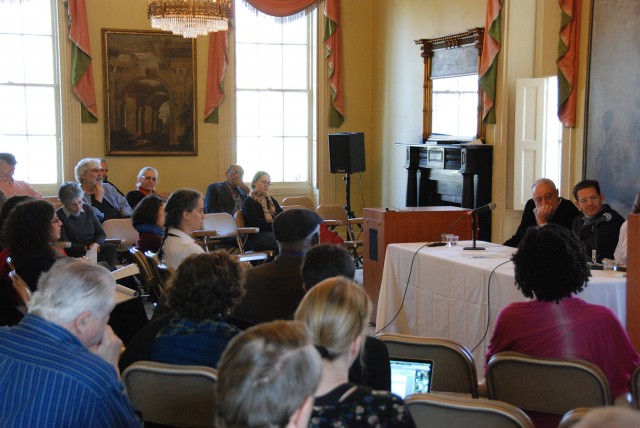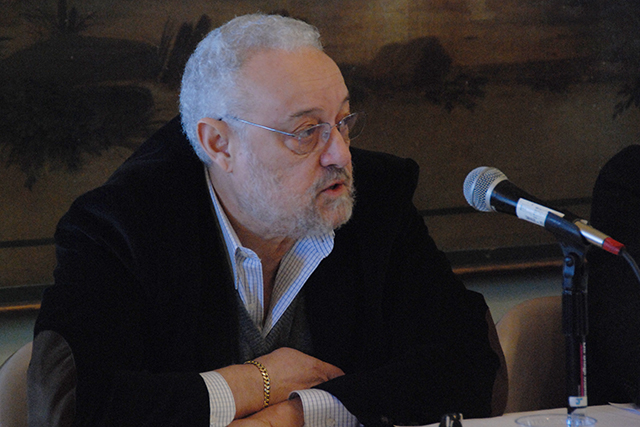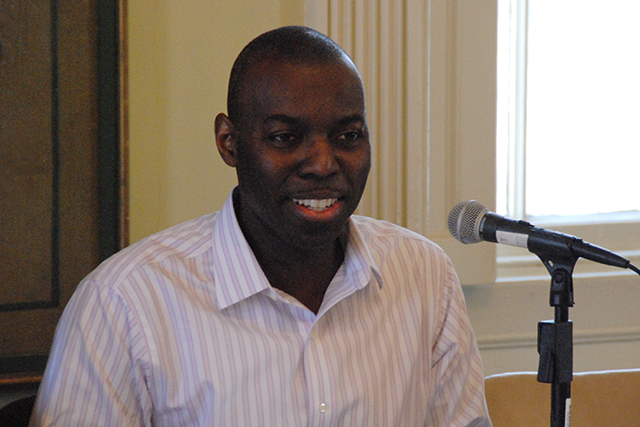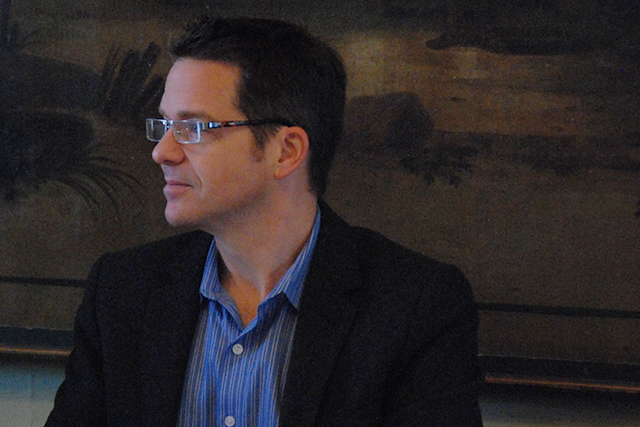Experts Discuss Césaire at Americas Forum




The forum was organized by Indira Karamcheti, director of the Center for the Americas and associate professor of American studies; Typhaine Leservot, associate professor of romance languages and literatures and the College of Letters; and Suzanna Tamminen, director of the Wesleyan University Press.
After a welcome on April 5, Clayton Eshleman, professor emeritus of poetry and literature at Eastern Michigan University; A. James Arnold, professor emeritus of French at the University of Virginia; Evie Shockley, associate professor of English at Rutgers University; and Yusef Komunyakaa, the Global Distinguished Professor of English at New York University, spoke on “The Poetic Legacy.” A. James Arnold delivered the forum’s keynote address on “Editing Césaire for the 21st Century.”
Richard Watts, chair and associate professor of French at the University of Washington, and Emily Sahakian, assistant professor of French at the University of Georgia, presented a lecture on “Producing Césaire.” Norman Shapiro, professor romance languages and literature at Wesleyan; J. Michael Dash, professor of French, social and cultural analysis at New York University; Holly Collins, assistant professor of French at Baylor University; and Clayton Eshleman presented a panel on “Césaire and Literature.”
Laura Wexler, professor of American studies and women’s gender and sexuality studies at Yale University; and Hazel Carby, the Charles C. and Dorothea S. Dilley professor of African American Studies and professor of American studies at Yale University presented a round table discussion on “The Caribbean and American Studies—Future Directions.”
In addition, Neely Bruce, John Spencer Camp professor of Music at Wesleyan, and guest Elizabeth Saunders presented “Césaire’s Music.”

